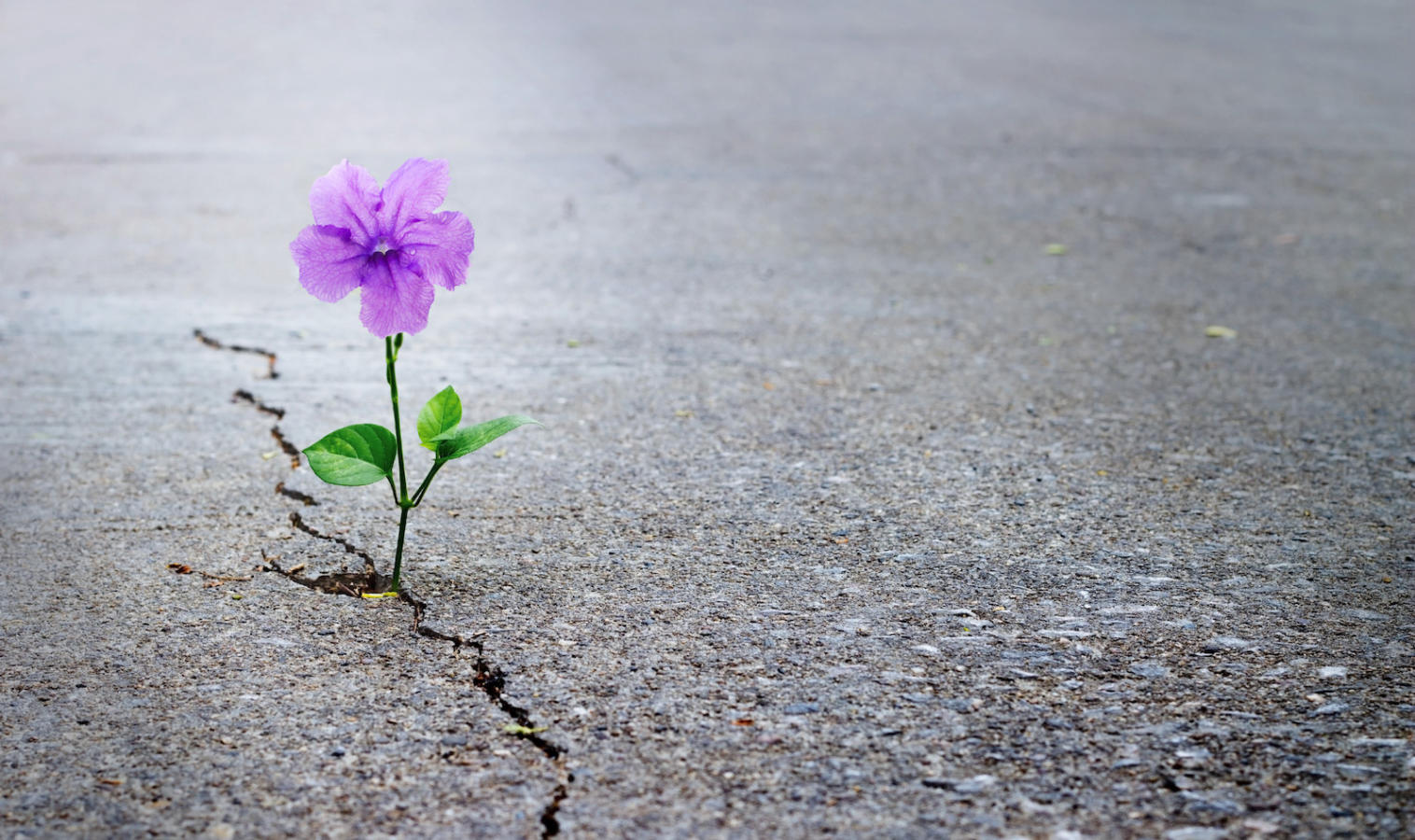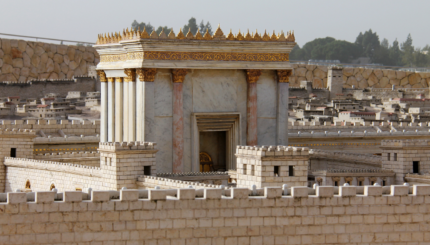One of the most formative moments in the history of Judaism came in the encounter between Moses and God in the burning bush. Moses asks God what name he should use when people ask him who He is. God replies enigmatically, in a phrase that occurs nowhere else in Tanach: Ehyeh asher Ehyeh.
Non-Jewish translations read this to mean, “I am what (or who, or that) I am.” Some render it, “I am: that is who I am,” or “I am the One who is.” These are deeply significant mistranslations. The phrase means, literally, “I will be what I will be,” or more fundamentally, God’s name belongs to the future tense. His call is to that which is not yet. If we fail to understand this, we will miss the very thing that makes Judaism unique.
Consider the structure of biblical narrative. In literature there are many kinds of narrative but they all have one thing in common, what Frank Kermode called “the sense of an ending.” They reach closure. Some end with “they all lived happily ever after.” We call these fairy tales. Others end in death and defeat. We call them tragedies. There are other types, but they all have a beginning and an end. That’s what makes them stories.
Now consider Genesis. The Jewish story begins with God’s call to Abraham to leave his land, his birthplace and his father’s house to travel “to the land that I will show you.” Seven times God promises Abraham the land, yet he has to haggle with the Hittites to buy one small plot in which to bury Sarah. Jacob and his family are forced into exile in Egypt. Genesis ends with the promise unfulfilled.

Help us keep Jewish knowledge accessible to millions of people around the world.
Your donation to My Jewish Learning fuels endless journeys of Jewish discovery. With your help, My Jewish Learning can continue to provide nonstop opportunities for learning, connection and growth.
Then Exodus begins. God calls Moses to lead the Israelites back to freedom and the promised land. Now, we feel, the story is about to reach closure. But it doesn’t come. Instead, a journey that should have taken days lasts 40 years. In the final scene of Deuteronomy, we see Moses, still on the far side of the Jordan, granted only a distant vision of the land. Again, the natural ending is deferred.
Tanach as a whole ends, in II Chronicles 36, with the Israelites in exile again, this time in Babylonia, and Cyrus giving them permission to return. We are almost back where we began, in the same region from which Abraham and his family first set out.
I know of no other stories that have the same form, namely a beginning but no end. We would not think of them as stories at all, were it not that we know the ending. It has been there since the beginning: God’s three promises to Abraham, of children, a land, and an influence on humanity such that “through you all the families of the earth will be blessed.” So there is an ending, but it is always beyond the visible horizon. The Jewish story ends, as Moses’ life ended, with a glimpse of the land not yet reached, a future not yet realized.
The same is true of Jewish belief. Judaism is the only civilization whose golden age is in the future: the messianic age, the age of peace when “nation will not lift up sword against nation” and “the Lord shall be one and His name One.” This ultimately was the dividing line between Judaism and Christianity. To be a Jew is to reply to the question “Has the messiah come?” with the words “Not yet.” In the fine phrase of Harold Fisch, the Jewish narrative is “the unappeased memory of a future still to be fulfilled.” Why? What does this tell us about Judaism?
At the heart of Judaism is a belief so fundamental to Western civilization that we take it for granted, yet it is anything but self-evident. It has been challenged many times, rarely more so than today. It is the belief in human freedom. We are what we choose to be. Society is what we choose to make it. The future is open. There is nothing inevitable in the affairs of humankind.
The ancients believed that human destiny lay in the stars, or blind fate, what the Greeks called ananke. Spinoza argued that our lives are governed by natural necessity. Marx claimed that history was determined by economic interests. Freud held that human behavior was shaped by unconscious drives. Neo-Darwinians argue that we are governed by genetic codes hardwired into our brains. Freedom, in all these theories, is an illusion.
This view is challenged in the opening chapters of the Bible. For the first time, God is seen as beyond nature, creating nature by a free, un-coerced act of will. By creating human beings in His image, He bestowed something of that freedom on us. Alone among created life forms, we too are capable of being creative. Biblical narrative is the ongoing drama of human freedom.
The first four narratives are tragic. First Adam and Eve, then Cain, abuse their freedom. That is then repeated on a global scale by the generation of the flood and the builders of Babel. People use their freedom to transgress boundaries or deprive others of their freedom. So a new beginning becomes necessary.
Abraham is told to leave all the things that constrain freedom – our land, birthplace and father’s house – and begin a new kind of life in covenant with God. Genesis is about that covenant as it affects individuals and families. The rest of Tanach is about the covenant as it applies to the life of a nation. The Jewish story, still unfinished, is about the journey from multiple forms of slavery to what Levinas called “difficult freedom.” Torah is the template of responsible freedom, our constitution of liberty.
Freedom, implies Genesis, is intimately related to language. God creates the world with words, and His first gift to humanity is the gift of speech. We know that other life forms – primates, dolphins, even bees – have rudimentary forms of language. But there is one form unique to human beings. The Torah signals this by making it the first word God speaks: Yehi, “Let there be.”
Human beings are the only life form capable of using the future tense. Only beings who can imagine the world other than it is are capable of freedom. And if we are free, the future is open, dependent on us. We can know the beginning of our story but not the end. That is why, as He is about to take the Israelites from slavery to freedom, God tells Moses that His name is “I will be what I will be.” Judaism, the religion of freedom, is faith in the future tense.
Western civilization is the product of two cultures: ancient Greece and ancient Israel. The Greeks believed in fate: the future is determined by the past. Jews believed in freedom: there is no “evil decree” that cannot be averted. The Greeks gave the world the concept of tragedy. Jews gave it the idea of hope. The whole of Judaism – though it would take a book to show it – is a set of laws and narratives designed to create in people, families, communities and a nation, habits that defeat despair. Judaism is the voice of hope in the conversation of mankind.
It is no accident that so many Jews are economists fighting poverty, or doctors fighting disease, or lawyers fighting injustice, in all cases refusing to see these things as inevitable. It is no accident that after the Holocaust Jews did not call it Al Naqba, nursing resentment and revenge, but instead turned to the future, building a nation whose national anthem is Hatikvah, “the hope.” It is no accident that Judaism has been opposed by every empire that sought to deny people the freedom to be equal-but-different. It is no accident that Israel is still today the only free society in the Middle East.
Judaism is a religion of details, but we miss the point if we do not sometimes step back and see the larger picture. To be a Jew is to be an agent of hope in a world serially threatened by despair. Every ritual, every mitzvah, every syllable of the Jewish story, every element of Jewish law, is a protest against escapism, resignation or the blind acceptance of fate. Judaism is a sustained struggle, the greatest ever known, against the world that is, in the name of the world that could be, should be, but is not yet. There is no more challenging vocation. Throughout history, when human beings have sought hope they have found it in the Jewish story. Judaism is the religion, and Israel the home, of hope.
Rabbi Jonathan Sacks is the former chief rabbi of the United Kingdom.



